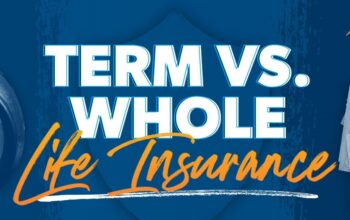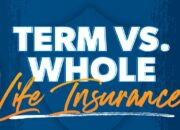Uzone.id – When a person plans to take an insurance policy, several terms in insurance need to be known by an individual like insurance policy, premium, grace period, etc.
By understanding these insurance terms, you can better comprehend the details of your policy.
Besides that, knowledge of essential insurance vocabulary is useful to the customers especially when they are faced with a need with the insurance company when pursuing a claim.
Take a look at the discussion in the following article. It is a collection of various terms commonly used in the insurance industry.
Here is a list of several basic terms that you will face when buying insurance products most of the time.
Insurance policy
This means that an insurance policy is loosely defined as the understanding of the contract that exists between the customer, in this case, the insured, and the insurance company that stands as the guarantor.
There is full disclosure of the customer policy rights and the obligations in the policy as well as rights and obligations of the insurance company.
The content of an insurance policy consists of coverage benefits or the extent to which the insurance policy would payout for a claim, the price of the premium, and exclusion on ways of placing a claim among other things.
Insurance premiums
Premiums are Contributions or fees that customers have to pay from time to time in the insurance period. The premium for insurance may differ with the customer type, the benefits that accompany the particular insurance product, and many more. The premium for insurance is usually made regularly either monthly, quarterly, or yearly basis.
Insurance insured
The insured receives compensation guarantees. For instance, if you apply the use of life insurance as a protection for yourself, it implies that you are the principal of that particular insurance.
For instance, if you insure your parents, they are the insured or beneficiaries.
Insurance underwriter
An underwriter in insurance is defined as the insurance company that gives assurance to the insured for particular risks once the insured party pays the premium. For vehicle insurance, the insurer will guarantee provisions of cash, medical charges, or repair bills at a repair firm.
Insurance benefits
Insurance by the meaning of the term insurance benefits refers to the protection or coverage that customers receive from the insurance company. For instance within health insurance, insurance benefits may include; the extent of coverage for hospital bills, surgery costs, drug costs, etc.
Insurance claim
An insurance claim is a formal request by a policyholder to recover damages covered by their insurance policy. For example, car insurance can cover repair costs, saving you money. LifePal offers up to 25% off your cheapest car insurance.
Grace period
The due date is the maturity or grace period which is allowed to the customers in case they delay the payment of the premium amount. Typically, the option is valid for 30 days and during this period, being within the grace period, the insurance policy will remain as effective as during a usual pay period. After this period, if the premium has not been paid then the policy status will be revised as lapsed or inactive.
Lapse
Lapse is an insurance term meaning that the customer’s insurance policy is no longer active.
This can happen if the customer defaulted in paying the premium and this transpires even after the grace period. In particular, if premium payments are in arrears, the insurance company can bring down the activity of the insurance policy and your insurance will be finished lapse.
Rider or additional insurance
In insurance, there are also such terms as rider or additional insurance. It is available when the customer has taken a basic insurance product but later wants to extend the amount of benefit to be paid out.
However, to enjoy these other benefits you have to purchase a rider which comes at an extra cost of the premium. For instance, in the health insurance plan, there are no benefits concerning outpatient and dental care.
Thus, if you want to receive outpatient and dental benefits nevertheless, you can purchase rider insurance as dental insurance or outpatient insurance.
Premium leave
Premium vacation, also commonly referred to as a holiday cancellation, is a product that lets clients cease payment for a particular policy for a certain period and then continue paying after the period without having to end the policy.
But, this type of leave does not in any way imply that insurance customers are not charged insurance premiums.
Police holder
A policyholder is a person who enters into a contract with the insurance company to avail protection or management of risks on his behalf or on behalf of the insured or third party.
The policyholder is the insurance customer and hence it instituted the insurance company; however, the policyholder may not be the Insured. The insured or person being insured can be a member of the policyholder’s family.
Do not make the expenses of repairing your favorite car an unnecessary add-up on your expenses. To be assured of absolutely fixed expenditure for repairing the car to the best of the shop, All Risk car insurance should be taken advantage of as it guarantees compensation for the whole expenditure.
Bancassurance
Bancassurance is an insurance product sold through the bank and normally becomes part of a plan to sell it to its clientele base. The insurance is purchased by consumers directly through the bank; then the bank and insurance company split the profits.
Endowment or dual-purpose
Combined insurance is defined as one financial tool that is flexible in that it combines both an insurance feature and a saving feature. Precisely, there is often a sort of life insurance.
Underwriting
Underwriting, commonly used in insurance, is the assessment of risks and the categorization of potential clients on how risky they are as per the insurance company. Underwriting is deemed as important as the illustration of the amount of premium that must be paid.
Underwriter
An underwriter is one person or an organization who can evaluate and estimate different risks for the policyholder as a benchmark to insurance businesses when dealing with customers’ claims.
Unit link
Unit links can be described as a kind of life insurance product with mutual benefits regarding the returns on investment. Thus, the premiums paid are not lost, but some are invested in various investment instruments.
However, it is important to know that this product has risks like any other form of investment available in the market.
Whole life insurance
In the insurance sector, it stands for whole life insurance which refers to exactly what whole life insurance is all about. Whole life insurance type This covers the customers for their entire lifetime, this is usually to the age of 100.
Sum insured
Insurance sum assured or UP refers to the face amount of money stated on the policy page and which shall be paid out if the insured passes on or if the terms of the policy are triggered.
UP is paid when the extent of coverage has been completed depending on the kind of insurance taken. Does not include amounts to be paid for other special provisions.
Risk
In insurance law and practice, risk refers to a peril that is supposed to be covered in the insurance policy in terms of the agreement between the insurance company and the policyholder.
The risks referred to in car insurance for instance range from colliding with other drivers, being flooded, being hurdled by hurricanes, and many others.
Free look period
The free look period is the period that the customers can scrutinize the insurance policy once the insurance policy has been issued by the insurance firm.
In this regard, the insurance customers have the right to either agree or reject the policy contract formulated by the insurer once they have understood the policy provisions well. Usually, the free look period as it is known lasts around, roughly, 14 days.
















